Cheese, parties, wine! Christmas is healthier than you think
As research shows that wine can be good for your heart, here are other ways festive foods, drinks and traditions can benefit both body and mind.

Let’s raise a festive toast to scientists who this week brought us the news that a small glass of wine every night can halve our risk of a heart attack and stroke, compared with not drinking at all. Reporting in the European Heart Journal, Professor Ramon Estruch from the University of Barcelona found that light to moderate wine consumption (half to one glass a day) reduces the risk of developing a cardiovascular event by 50 per cent in people at risk.
Those in the study were also following a healthy Mediterranean diet high in olive oil, vegetables, fruit, nuts and fish, and low in sweet or processed food and drinks. “Until now, we believed that 20 per cent of the effects of the Mediterranean diet could be attributed to moderate wine consumption,” Estruch says. “However, in light of these results, the effect may be even greater.”
So that’s one less thing to feel less guilty about when it comes to Christmas consumption – and there’s more. Here are some other ways that festive foods, drinks and traditions can be good for both body and mind.
Eating turkey boosts mood and healthy muscles
With a lower fat content per serving than chicken, and relatively high amounts of protein to fill you up, turkey is always a wise choice for the waistline. “Turkey meat contains tryptophan, an amino acid that boosts serotonin production, which is crucial for mood regulation,” says Dr Jenna Macciochi, a lecturer in immunology at the University of Sussex and the author of Immunity: The Science of Staying Well. “Eat a lot of turkey and it might improve your mood and also your sleep patterns.”
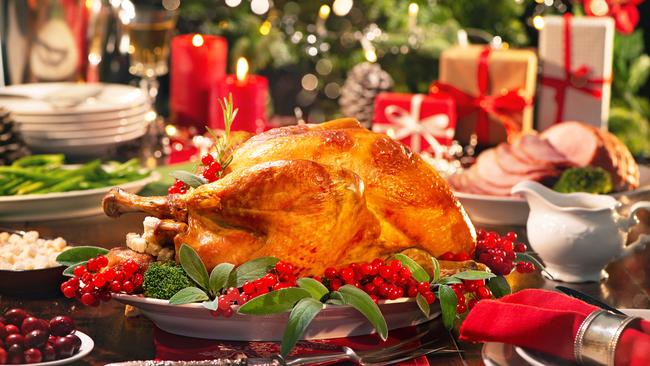
Turkey breast is also one of the best sources of an amino acid called beta-alanine, which has been shown to protect against the lactic acid build-up during exercise that can cause your muscles to tire. Researchers at the University of Chichester’s School of Sport Exercise and Health Sciences found that 150g of turkey meat (a single breast) increased muscle concentrations of beta-alanine by 40 per cent and helped cyclists improve performance by 13 per cent.
Sing carols to boost your quality of life
Belting out some Christmas carols with family and friends is guaranteed to get you into the festive sprit. Singing with others was found to enhance mood and reduce stress in a study conducted at the University of Toronto, with researchers showing that levels of the feelgood hormone oxytocin were elevated after a group singing session. Others have shown that singing together has wide-ranging effects on wellbeing, with a study in Psychology journal reporting better resilience, an enhanced sense of belonging and purpose and improved quality of life in people who sing in groups.
Don’t avoid the cheese board — it can boost gut health
Aged cheeses such as mature cheddar and stilton are salty – which isn’t good news for your blood pressure – and contain about 120 calories per 30g serving, so shouldn’t be eaten in excess. But they do have many redeeming features. Research at University College Dublin by Emma Feeney, an assistant professor of food science, has shown that blue-veined cheeses such as stilton help to break down proteins that, in turn, produce beneficial bioactive peptides, which have antioxidant anti-inflammatory effects in the body.
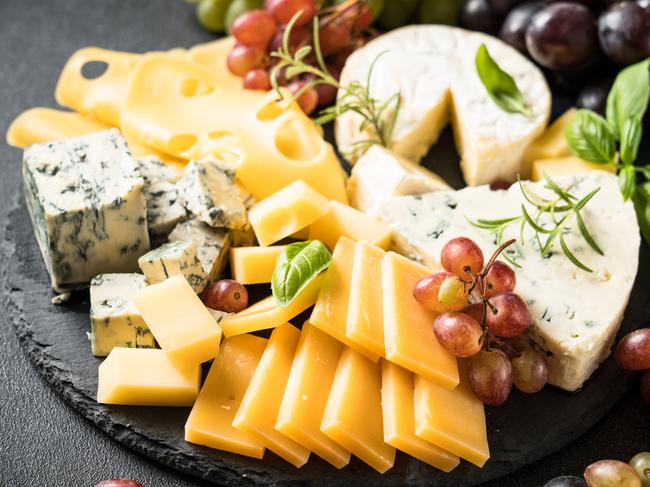
As a fermented food, cheese contains a range of live beneficial microbes that boost the microbiome and, in turn, ramp up immunity and benefit all-round health. “The variety of beneficial bacteria depends on the starting culture and individual cheese,” Feeney says. “The more mature a cheddar, the greater the number of beneficial gut bacteria it likely contains.”
Enjoy a glass of fizz — it could also boost your memory
Made predominantly from two red grapes, pinot noir and pinot meunier, along with the white grape chardonnay, champagne has relatively high levels of antioxidant polyphenol plant compounds compared with white wine, and these have health benefits. At the University of Reading, nutrition scientists reported that the polyphenols in champagne alter proteins linked to memory storage in the brain. They suggested that drinking one to three glasses of champagne a week might help to counteract age-related memory loss. The same team previously showed that the polyphenols in champagne are absorbed into the circulation, where they are able to improve the way blood vessels function, potentially boosting heart health.

Partying reduces the risk of Alzheimer’s
Although it might not always feel like it, getting together with family and friends at Christmas, for parties and long lunches, is good for the brain. A study in Nature Aging last year showed that the more socialising we do in middle age and older, the greater the chance we will lower our risk of dementia by 30 to 50 per cent. It’s not just that chatting boosts our mood; social interaction has been shown to strengthen neural pathways and to stimulate attention and memory. When older people interacted with close friends and family they performed better in cognitive tests of memory on the same day and two days later, according to psychologists from Penn State University.
Eat up your sprouts for healthy arteries
Brussels sprouts are set to be 25 per cent bigger this year due to good growing conditions, and piling them on your plate will bring health benefits. As well as immune-supporting vitamin C, sprouts and other cruciferous veg, including cauliflower and broccoli, are also a source of sulfurophane, a sulphur-rich compound that has been shown to help lower blood pressure.
A daily 45g serving of cruciferous veg - about five sprouts - could also lower the build-up of harmful calcium levels in the aorta, the body’s largest artery, according to research at the Quadram Institute in Norwich, a centre for food and health research. The same team showed in the journal Nutrients that a regular intake of cruciferous vegetables can protect against prostate cancer. “There’s a wealth of evidence suggesting that dietary compounds in cruciferous veg reduce the risk of progression of prostate cancer,” says the urologist registrar Tracey Livingstone, the lead author of the study.
Dark chocolate could lower your risk of type 2 diabetes
If you’re rifling through a box of chocolates, opt for plain dark over milk, white or sweetened varieties. Dark chocolate typically contains more cocoa, which is rich in plant-based compounds called flavonoids that have been shown to have antioxidant and anti-inflammatory effects, helping to open blood vessels and improve blood flow. The same plant compounds can also improve insulin sensitivity, helping blood sugar control. A recent study in the BMJ showed that people who enjoy a small serving of dark chocolate (28g) five times a week have a 21 per cent lower risk of type 2 diabetes. “If you want a sweet treat, dark chocolate is a good option,” says Dr Linia Patel, a spokeswoman for the British Dietetic Association. “It contains minimal sugar but supplies some iron and antioxidants.”
Don’t skimp on the cranberries — they have unrivalled antioxidant levels
Fresh cranberries are low in calories (about 22 per 100g), so provided that you don’t choose a sugar-packed, highly processed sauce it’s worth piling it on your festive meals.
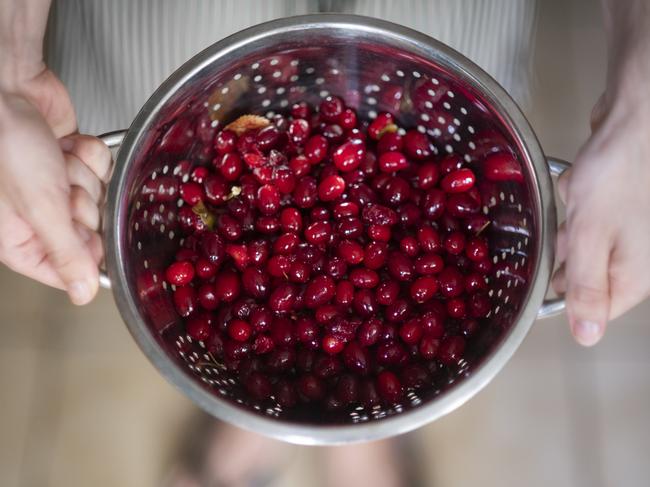
One paper in the Journal of Agricultural and Food Chemistry reviewed 20 common fruits and found cranberries to have the highest level of phenols, a type of disease-fighting antioxidant, beating pears, red grapes and apples, which made up the top four. Adding cranberries to the diet can also help to reduce weight gain and keep deep belly fat at bay, according to a review of evidence in the Journal of Functional Foods.
Medjool dates will improve digestion
Dates are a good source of prebiotics that feed your gut microbiome, helping it to flourish and, says the registered nutritionist Eli Brecher, are also packed with “high amounts of fibre and beneficial plant compounds, potassium, magnesium and iron”. Nutrition scientists at the University of Reading reported that adding 50g of dates, the equivalent to about seven regular or three medjool dates, to the daily diets of 22 healthy participants significantly improved digestive function.
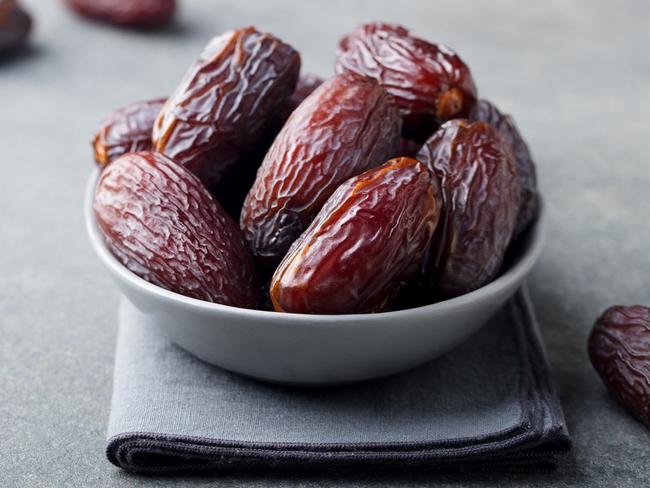
After three weeks, tests on different metabolic markers indicated that eating dates regularly “may reduce colon cancer risk”, the team said. Natural sweetness means dates aren’t low in calories - a single medjool date can provide 66 calories - but they are still a healthier choice than dipping into the box of Quality Street.
The best nuts to eat for a prebiotic boost
An analysis of more than 8,000 foods conducted by Dariush Mozaffarian, a cardiologist and professor of medicine at Tufts University, Massachusetts, and published in Nature Food, ranked almonds coated in dark chocolate as one of the healthiest sweet snacks.
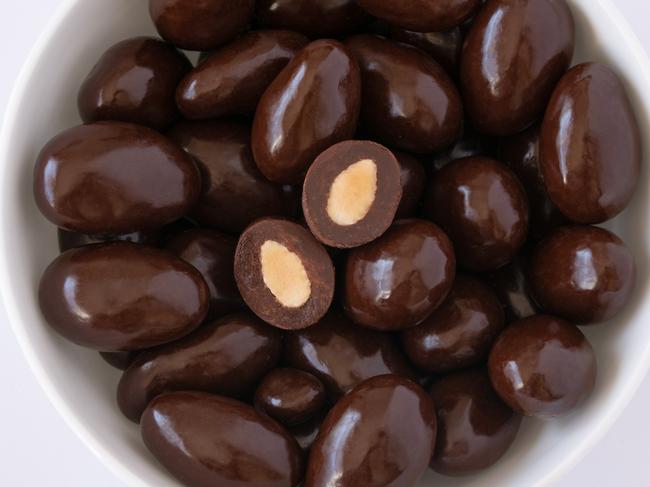
All nuts, including almonds, provide vitamin E and fibre and have been shown to boost levels of “good” HDL cholesterol when eaten regularly. They are a potent prebiotic food, and eight weeks of snacking on a handful of almonds daily was shown in a study from the University of California to improve gut microbe diversity in men.
Scrambled eggs and smoked salmon — the breakfast of champions
A Christmas Day breakfast of scrambled eggs and smoked salmon is packed with satiating protein that will help to stave off hunger pangs until the turkey is served, says the nutrition therapist Ian Marber. “Smoked salmon provides healthy omega-3 fats, known to ease inflammation and preserve brain function.
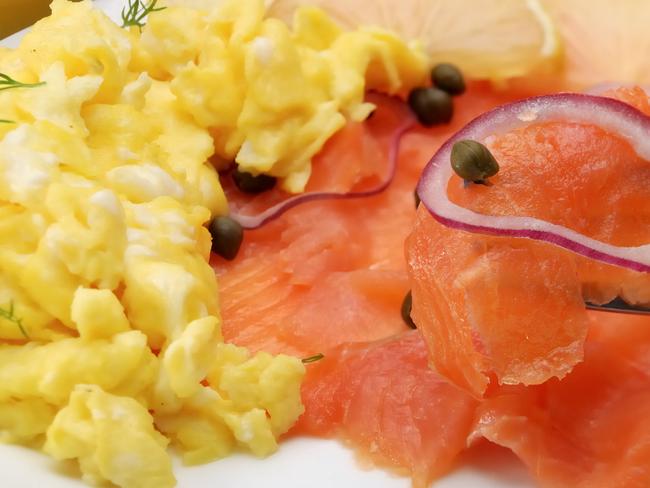
Eggs are also a good source of a range of nutrients important for all-round health, including vitamin B12, vitamin D, selenium and iodine.”
That post-lunch walk will regulate your blood sugar
Walking off the turkey and trimmings will help you to digest the mountain of food and bring added health benefits. Aidan Buffey, a sport and exercise scientist at the University of Limerick, says that a few minutes of walking instead of sitting is enough to prompt muscles to use glucose circulating in the bloodstream, helping to control blood sugar levels. “Even standing up for a few minutes will lower blood glucose levels, although it is not as effective as walking,” Buffey says. You don’t have to walk far to reap the benefits; one of Buffey’s papers in the journal Sports Medicine showed that as little as two to five minutes of brisk walking after a meal can lower blood sugar levels.
Dance! It’s good for cognitive function
This year researchers from Australia rated dancing as one of the best forms of physical activity for beating depression. Writing in the BMJ, their review of 218 different studies involving 14,170 participants showed that dancing has a more potent effect on mood than several other forms of exercise, including jogging, yoga, t’ai chi, strength training and walking. Dr Julia Christensen, a neuroscientist and the author of Dancing Is the Best Medicine, says: “If you hold your arms above your head when dancing it opens the lungs to make breathing deeper and more efficient. It can also release tension in the diaphragm that [otherwise] causes us to feel stressed. Dancing feels like a tremendous physical and mental release.”

And that’s not all dancing is good for, so don’t be a wallflower. A 21-year study by the Albert Einstein College of Medicine in New York and published in the New England Journal of Medicine found that regular dancing considerably reduced the risk of dementia.
Crack some walnuts for a dose of healthy fats
Eating more walnuts will bring a host of health benefits, with studies showing that, thanks to their heart-healthy omega-3 fatty acids, they can help to lower cholesterol levels and blood pressure if consumed regularly. Eating 60-90g of walnuts a day was shown to be a good way to improve gut health and reduce the risk of heart disease by researchers at Penn State University, while at Louisiana State University researchers found walnuts aided digestive health by bumping up “good” bacteria like lactobacillus and ruminococcaceae in the gut. “Nuts are a great addition to the diet, providing gut-healthy fibre, healthy fats and vitamins B and E as well as important minerals including iron and potassium,” Brecher says.
Play board games to de-stress
If Christmas time is too stressful, get out the Scrabble or Monopoly. Plenty of studies have shown that playing board games reduces general and social anxiety. Psychologists at Edge Hill University surveyed more than 1,600 board-gamers for a study in Simulation and Gaming journal last year and found that many people who play them regularly do so to ease anxiety. Meanwhile, a research team from Harrisburg University of Science and Technology showed that playing board games enhanced the mental wellbeing of participants.
Red cabbage — the festive superfood
Red cabbage, a classic Christmas vegetable, is an underrated superfood, with data from the US Department of Agriculture’s Agricultural Research Service revealing that the humble vegetable contains 36 different varieties of anthocyanins, naturally occurring antioxidants that give fruit and veg a purple or deep red hue, which have been linked to cancer protection.
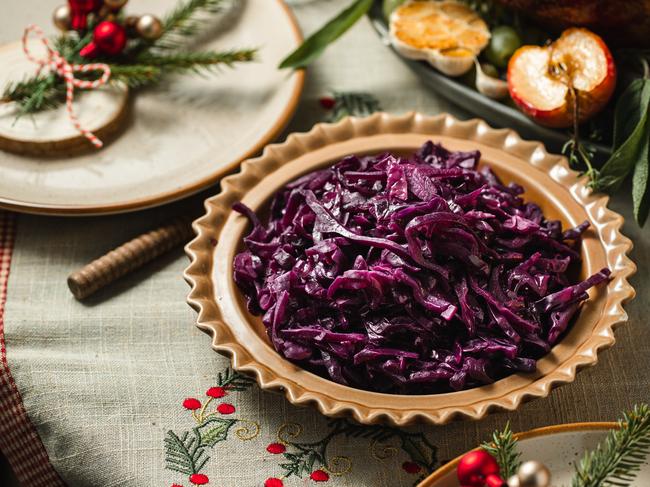
“Like other types of cabbage, the red variety also contains the cancer-fighting compound sulforaphane, so pile it up on your plate,” Marber says.
Have a clementine for a vitamin C shot
Don’t just keep them for the Christmas stocking – these festive favourites are low in calories (about 35 in each fruit) and packed with immune-supporting vitamin C. They also contain valuable amounts of fibre and are good for the waistline. In 2015 the results of a study of 133,468 American adults over 24 years showed that those who ate the most citrus fruits avoided weight gain.
Make soup from the leftovers to boost immunity
Homemade turkey soup packed with vegetables is a great way to use up leftovers, and could also help if you’ve got a cold, Macciochi says. “Any soup is warm and comforting, which makes it a real feelgood food.” A number of substances in turkey soup can support immunity and help you to recover from seasonal colds and viruses. “These include carnosine, which supports immune cells,” she says, “and vitamins and nutrients that ease mucus and inflammation in the airways.”
The Times


To join the conversation, please log in. Don't have an account? Register
Join the conversation, you are commenting as Logout